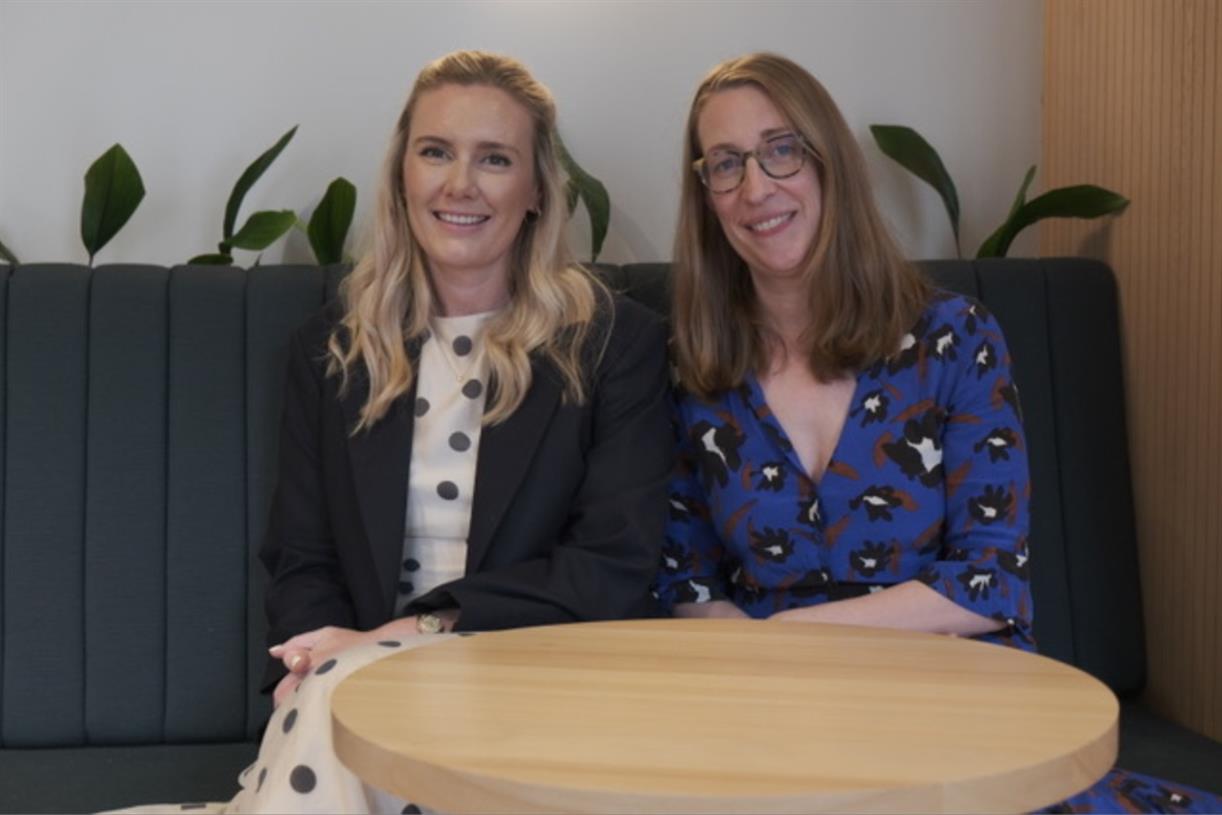Psychedelics and Spirituality: Exploring the Intersection at Psychedelic Science 2023
In June, the largest psychedelic conference in history, Psychedelic Science 2023, brought together a diverse group of experts to explore the scientific, therapeutic, and spiritual potential of psychedelics. Jason Moscow reports. The post Psychedelics and Spirituality: Exploring the Intersection...

In June, the largest psychedelic conference in history, Psychedelic Science 2023, brought together a diverse group of experts to explore the scientific, therapeutic, and spiritual potential of psychedelics. Jason Moscow reports.

Participants at the Psychedelic Science 2023 conference. Photo courtesy of Psychedelic Science 2023.
In the third week of June, scientists, therapists, Indigenous medicine peoples, pharmaceutical executives, and psychonauts convened in Denver’s Colorado Convention Center for Psychedelic Science 2023, the largest psychedelic conference in history hosted by the Multidisciplinary Association for Psychedelic Studies (MAPS).
“I have something that I really want to say,” declared Rolland Griffiths, leading neuroscientist and founding director of the Johns Hopkins Center for Psychedelic and Consciousness Research in Baltimore, Maryland. Looking out on a crowd of thousands from the conference’s keynote stage, Griffiths declared that the psychedelic assisted therapy model would be a great “force to reduce suffering in the world,” but the future of psychedelics is spiritual.
While many of the conference’s panels highlighted clinical science demonstrating psychedelic assisted therapy’s efficacy in treating mental illnesses, Griffiths insisted that psychedelics have an enormous capacity to serve people who are considered to be mentally well. “What’s more interesting to me is the potential transformative effects psychedelics have for humankind more broadly,” he said.
“We have the potential to wake up to a sense of freedom, peace, joy and gratitude that most of the world finds unimaginable.”

Roland Griffiths, founding director of the Johns Hopkins Center for Psychedelic and Consciousness Research. Photo courtesy of Psychedelic Science 2023.
Griffiths shared that there are three core elements he’s found that repeatedly emerge from psychedelic experiences: a sense of “oneness” and connection, something “precious beyond belief,” and authoritative truth.
“When you put together this sense of connectedness, the sense of preciousness, and the incredible sense that it is true, you have set the stage to change someone endurably.”
These truths, which Griffiths discovered through psychedelics, internal reflective practices, and empirical research, align with the indigenous worldviews that have been using earth based medicines in ceremonial contexts for millennia.
In a workshop on plant medicines, Indigenous healing traditions, and right relationship, Mona Polacca, a Lakota wisdom keeper from the Native American Church of Southern Arizona, explained: “Our ethics come from what we call the original instructions. Those are Indigenous people’s instructions about how to have our relationship with our mother the earth — the water, the air, the fire, the sun.”
“The medicines are the fruit from Her [mother earth’s] breasts,” Polacca said, explaining that earth-based medicines fit into larger Indigenous ethical frameworks and oral traditions.
“My mother told me, ‘You’re not just here for nothing. You have a purpose. You have to think about yourself, your home, your immediate family, your extended family, your community, your people, your world, and all of the other life forms that live here.’”

Mona Polacca, a Lakota wisdom keeper from the Native American Church of Southern Arizona speaks at the “Plant Medicines, Indigenous Healing Traditions, and Right Relationship” workshop. Photo courtesy of Psychedelic Science 2023.
According to MAPS’s Founder Rick Doblin, psychedelic therapy using MDMA (street name molly) to treat patients with post-traumatic stress disorder could be federally legalized by the end of next year. Psychedelic therapy using psilocybin (hallucinogenic chemical in magic mushrooms) is expected to follow.
Mary Cosimano, a social worker who has held space for hundreds of psychedelic journeys in her work as the Director of Guide/Facilitator Services the Center for Psychedelic and Consciousness Research, lead a workshop titled, “Guiding Psilocybin Therapy Sessions,” offering insight into the therapeutic competencies necessary for guiding psychedelic-assisted sessions and creating a safe setting. Cosimano explained that, when the role of a therapist is being performed effectively, their own “stuff” does not enter the session room, allowing the therapist to serve as, “a clear channel.”
“The best way to be a psychedelic therapist is to work on yourself,” she said. “It’s kind of the only thing.”
Upstairs, Bill Richards, a research psychologist at the Center for Psychedelic and Consciousness Research, led a workshop titled, “Psilocybin as a Tool in Personal and Spiritual Development.”
During the workshop, Richards described two potential arcs in a psilocybin session. In the first arc, he said, the patient may initially confront intensely personal traumas and experiences, eventually moving into a more mystical, ineffable experience. Alternatively, a patient might “blast off” into the ineffable from the start and then “work their way down the mountain” through a series of personal experiences. According to Richards, the therapist’s job is “to let that person’s mind choreograph the content of the psychedelic session.”
Richards explained that his invitation to psilocybin therapy patients is to “trust, let go, and be open.” Rather than providing a specific roadmap for patients who embark on a therapeutic psilocybin journey, Richards likes to introduce more simple principles, like his guidance to “choose to turn off your intellect and dive into whatever emerges without the need to explain.” If something scary comes up for a patient, Bill said he encourages them to move, “in and through” the experience.

Bill Richards (left) and Brian Richards (right) present at a workshop on “Psilocybin as a Tool in Personal and Spiritual Development.” Photo courtesy of Psychedelic Science 2023.
“If it comes into awareness, that means you’re ready to deal with it,” he said. “If there’s some trauma that you’re not ready to touch at all, it won’t even show up. If it’s here, you’re ready for resolution.”
Griffiths explained that the psychedelic-assisted therapy model’s classic setup of a “couch, eye shades, and headphones in windowless rooms,” was designed to produce trackable results, but “barely scratches the surface” of what’s possible. Within this secular setup, a myriad of spiritual influences can be found in the music flowing through the patients’ ears.
Richards’ son, Brian, leading clinician at Sunstone Therapies, explained the intention behind playing music during a session is to “challenge people to go in very, very deeply.” Brian shared the Sunstone therapies playlist, which included music spanning between Hindu chants, Bach, “improvisation for the second chakra,” and bird sounds.
The secular spirituality of psychedelic science is inner directed, rooted in experience, and independent of dogma. At the same time, it has an umbrella that is wide enough to incorporate and engage with the doctrines and practices of all the world’s leading religious traditions.
The conference’s structure, which highlighted religious leaders from a range of traditions, pointed to the idea that psychedelics, as catalysts of direct and significant spiritual experiences, could fit into existing religious frameworks. Speaking on Islam’s relationship to psychedelics, Muslim leader Kamal Abu-Shamsieh noted, “You cannot put limits on healing and the means of how people will achieve healing.”
During a celebratory dinner to honor Griffiths’ contributions to the field, Rick Doblin explained that Griffiths’ recent research administering psilocybin to religious professionals “is one of the most important studies of all of the studies,” and has the “greatest potential for social and spiritual change in the culture.”

MAPS founder Rick Doblin. Photo courtesy of Psychedelic Science 2023.
In the experiment, twenty-four psychedelic naïve, ordained clergy from various religious traditions were administered two separate high doses of psilocybin. After a twelve month follow-up, the majority of participants rated the psilocybin session experiences to be “among the most spiritually significant and personally meaningful experiences of their lifetime.”
According to the phenomenological interview research presented by T. Cody Swift, Executive Director of Riverstyx Foundation who assisted with Griffiths’ study, participants reported, “a greater sense of trust in God/Divine, flexibility, and freedom from striving in their work.” Additionally, participants reported, “increased conviction and personal fulfillment in the practice of their tradition,” and, “increased openness to other religious pathways.”
Before the study results have even been published, study participant Hunt Priest, an Episcopal Priest from Georgia founded Ligare, a “Christian Psychedelic Society.”
“Psychedelics have a lot to offer the Christian church,” Priest said. “And at the same time, the church has a lot to offer the psychedelic community.”
“What psychedelics have to offer the church is a reinvigoration of spirituality,” he said.
“We’re a little bit alienated from the experience of God,” said Rev Dr. Jaime Clark-Soles, a Baptist Minister who participated in the study, speaking of Christianity at large.
“We’re heavy on the verbal and the doctrinal… but there’s a hunger and a thirst for the embodied experience.”

Psychedelic Science 2023 was held at the Colorado Convention Center. Photo courtesy of Psychedelic Science 2023.
Psychedelics, Clark-Soles continued, enable seekers to use direct experience to guide their interpretation of scripture, rather than the other way around.
In a panel, Daan Keiman, who has a private practice as a Buddhist “psychedelic chaplain,” and serves as the Lead Facilitator for Synthesis Retreats based in Amsterdam, shared his view that psychedelics could be used as a complimentary tool in Buddhist practice to avoid spiritual bypassing.
In short, Keiman said, focusing on intense meditation practice can make it easy for practitioners to spiritually bypass important personal and societal issues. Alternatively, guided psychedelic sessions can bring those issues to the forefront and create opportunities for resolution. While Buddhist practice allows practitioners to awaken to the nature of mind, Keiman believes psychedelics coupled with Buddhist practice can provide tools to work through psychodynamic issues that would allow a practitioner a greater depth of awakening.
In his talk, Griffiths shared his multigenerational vision for the future, asking “What happens when we change culture at scale?”
“My vision for the future is that we come out with a coherent set of ethical understandings, worldwide, and across cultures that we can agree on — that thereby the human species flourishes and doesn’t distinguish itself,” he said.
“We all want that. I’m sure we do.”

 Tekef
Tekef 
































